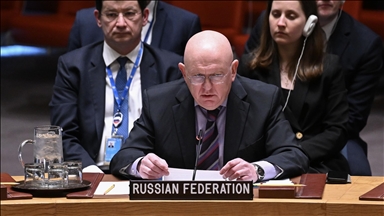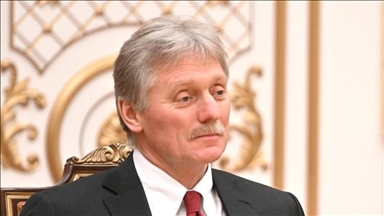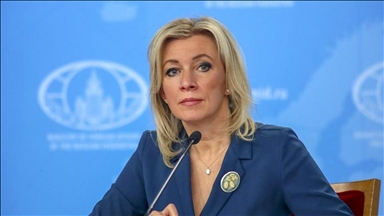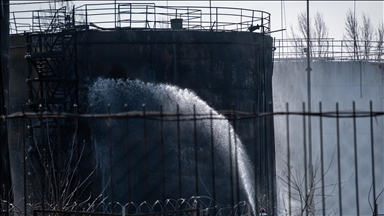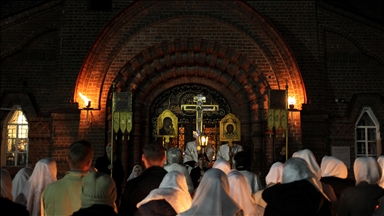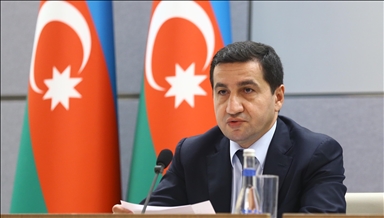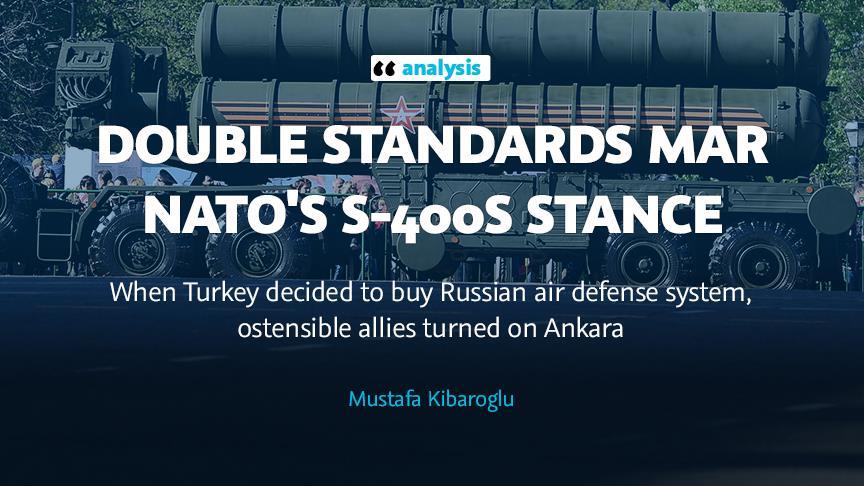
ISTANBUL

Harsh criticisms and serious warnings issued by the top brass and diplomats from allied countries over Turkey’s plans to buy a sophisticated Russian air defense system, also known as the S-400, have intensified over the past few weeks.
This is especially in the aftermath of statements made by the authorities in Turkey and Russia which hinted at the possibility of finalizing the deal in the near future.
A similar situation was experienced only a couple of years ago when Turkey embarked upon a negotiation process with a Chinese company, namely China Precision Machinery Export-Import Corporation (CPMIEC) for the acquisition of air defense systems.
With its significantly lower price as well as a willingness to share technology with Turkey plus a promise for co-production in the next phase, CPMIEC stood out among the bidding companies from the U.S., Russia, France and Italy.
These states had also submitted offers to the Under-Secretariat of Defense Industries (SSM), which operates as the scientific and technological assessment branch of the Turkish Ministry of Defense.
Turkey’s allies were quick to express their concerns about the deal on the grounds that the Chinese system, if and when installed in Turkey, would lead to leaking of sensitive and strategic military information/data, and then to whomever China would like to share it with.
Furthermore, similar concerns were also expressed with respect to the (in)compatibility of the Chinese air defense system with that of NATO, known as the “Missile Shield”, which encompasses a sophisticated radar site in Kurecik, Malatya (eastern Turkey) as well.
Turkish officials and technical experts tried to inform, and thus reassure, these allies by arguing Turkey would be capable of developing an “interface” between the Chinese system and the NATO system. This would enable the parties to become integrated for operational purposes, while also preventing any possible leakage from the Turkish air defense network to the Chinese company.
Even though detailed technical explanations were provided by the Turkish side, these allies ultimately “disliked the idea for political reasons”, as one high-ranking NATO official told this author in a private conversation in Brussels.
Eventually, after long deliberations within the state bureaucracy, the Turkish government revised its decision to buy the air defense systems from the Chinese company and thus shelved the bid for an indefinite period.
Concomitantly, the SSM issued a statement emphasizing the Turkish government’s decision to encourage domestic industrial companies to invest in indigenous production of similar systems in due course.
It did not take long for the original bidders, the American firm and the Franco-Italian consortium in particular, to ask for a resumption of negotiations with a view to supplying Turkey with their air defense batteries.
Deja vu, all over again
In parallel with these developments -- partly due to the political rapprochement between Turkey and Russia in the aftermath of the year-long crisis triggered by the shooting down of a Russian jet by a Turkish plane back in November 2015 -- and also partly due to the pressing need for Turkey to deploy an effective air defense system, especially in its regions neighboring the Middle East, Turkish and Russian officials held a series of talks over the issue of selling the Russian S-400s to Turkey! Then, guess what? Deja vu, all over again!
Way back in 1998, when the Greek Cypriot administration decided to buy the S-300 air defense system from Russia, the reaction of Turkey’s NATO allies would be qualified as being “reluctant”, at best, despite the fact that Turkish authorities have warned, time and again, their counterparts in Western capitals that such a move would seriously disrupt the strategic balance between Turkey and Greece in the eastern Mediterranean and would have serious consequences for all the parties involved.
Notwithstanding Turkey’s repeated warnings, it would not be wrong to say that NATO allies did not even raise an eyebrow to the Greek Cypriots’ plans to deploy a Russian air defense system on the island.
It was rather Turkey’s resolute stance against the deployment of S-300s on the island that finally forced the Greek side to handover the deal to Athens, for storing the air defense batteries on Crete.
Some 14 years later, when Greece decided to integrate the S-300s into its national air defense system and used the batteries during the White Eagle 2013 military exercise, no criticisms came from these allies, either.
Moreover, when Turkey and its NATO allies had a row over the acquisition of the Chinese air defense system, authorities in Western circles did not seem to be disturbed by references made by Turkish authorities to Greece and its Russian air defense system on the grounds that “it would be used separately from NATO’s capabilities” and thus “it would not cause a major concern for them”.
But, when Turkey decided to buy an upgraded and more sophisticated version of the Russian air defense system, namely the S-400s that will also be used separately from NATO’s capabilities, the tone of the statements made from the allied capitals and military headquarters turned very harsh and almost threatening, implying that our allies might take measures to stop Turkey from proceeding any further with the deal.
Regional threats
In the face of the threats posed by the Middle Eastern neighbors’ growing missile capabilities, there is no question about Turkey’s need to build an effective air defense system. For the time being, Turkey does not have the necessary scientific and technological skills to achieve such a goal all by itself.
Hence, one option would be to buy such a system from abroad, and the other option would be to develop these capabilities indigenously over time in cooperation with one of the allies that have such advanced capabilities.
That said, it is unfortunate to see that Turkey’s allies neither want to sell the system at a reasonable price, nor do they agree to share their scientific and technological capabilities with their “staunch ally” for co-production over a long period of time.
One might argue that Turkey has become integrated into the “Missile Shield” of NATO since the Chicago Summit of the Alliance held in May 2012. However, one should not forget the fact that NATO’s air defense system will not be capable of providing protection to the entire Turkish territory due to technological as well as geographical/topographical limitations.
Large segments of Turkey’s eastern and southeastern provinces will remain outside of the coverage of the Missile Shield.
Hence, regardless of whether the Missile Shield becomes fully operational in the years ahead, parts of the Turkish territory, meaning millions of Turkish citizens, will be exposed to the missile threat emanating from Turkey’s Middle Eastern neighbors.
It is by no means sensible to expect the Turkish government to stay indifferent in the face of such clear and close dangers from its neighboring regions. It is, therefore, imperative for Turkey to endow itself with a variety of air defense systems, in order to cope with the limited protection of the Missile Shield.
This could be achieved in the short term by way of procurement from major suppliers, which are not so plenty, and in the long term by way of indigenous production in Turkey, while Turkish defense industries elevate themselves to that level of productive sophistication.
* Opinions expressed in this article are the author’s own and do not necessarily reflect the editorial policy of Anadolu Agency.
Anadolu Agency website contains only a portion of the news stories offered to subscribers in the AA News Broadcasting System (HAS), and in summarized form. Please contact us for subscription options.


